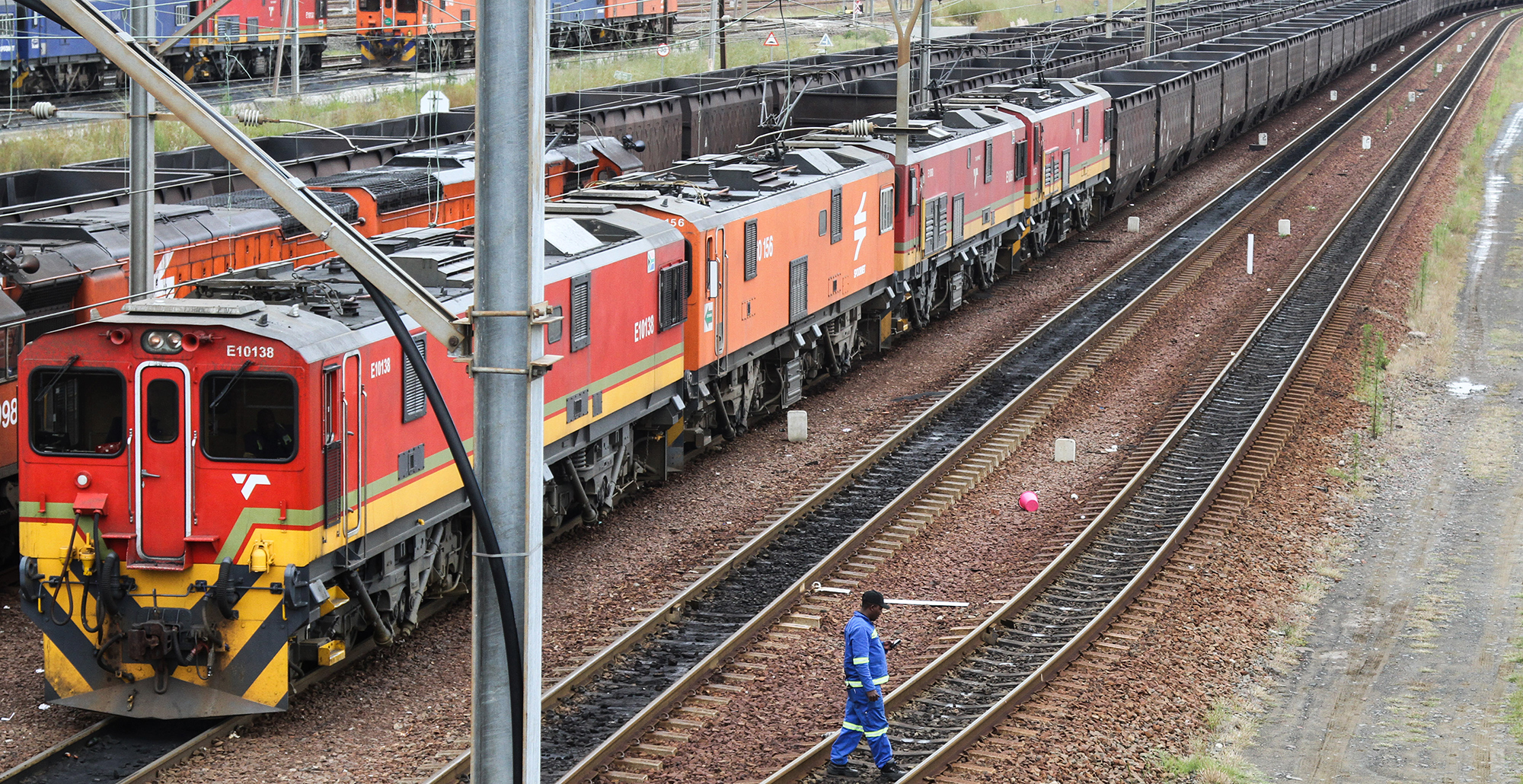Transnet’s efforts to get private sector players to run its crucial railway lines have bombed further, with the state-owned transport group cancelling a contract awarded to one of only two companies that showed interest in partnering with it.
Transnet Freight Rail, the largest division at Transnet in terms of revenue generation, announced on Monday that it had cancelled a conditional contract with Traxtion Sheltam, which emerged as a successful bidder in November 2022 to operate the Kroonstad to East London railway line.
The line, known as the Cape Corridor, is crucial for SA’s economy as it is the main line for manganese exports and agricultural commodities. Transnet said the cancellation of the contract was by mutual agreement with Traxtion Sheltam, which operates railway lines in several African countries.
It is a blow to the much-vaunted plan by the government for Transnet to embrace the private sector, which would be allowed to auction rail slots from the state-owned enterprise (SOE) and use its skills to run trains while also pouring in money to upgrade the rail infrastructure.
Transnet’s process to auction 16 rail slots on its two key rail routes was doomed from the beginning. The two routes on which rail slots were auctioned are the Durban-Johannesburg container route and the Kroonstad-East London route. Transnet said this was a pilot phase that tested the appetite and willingness of the private sector to partner with the SOE.
By November 2022, Transnet had attracted only two bidders, one of which was successful. The only bid for the Cape Corridor route was successful and went to Traxtion Sheltam. On the second route (the Durban-Johannesburg container route) on which slots were auctioned, no bidders were successful.
Challenging talks
On Monday, Transnet said after choosing Traxtion Sheltam as the preferred bidder, negotiations with the company to work out the mechanisms for its participation in the SOE’s railway lines proved challenging.
“The negotiation phase was protracted due to the inherent complexity of the contract negotiations, design of the required service, interface with municipal-owned rail network on the chosen customer access route, unpacking the impact of the Employers Association Bargaining Council, as well as the commercial reality of the service offering to the eventual customers,” Transnet said. These limitations would be addressed in Phase 2 of its initiative to partner with the private sector.
Traxtion Sheltam told Daily Maverick that it will not comment on the matter further other than what Transnet has said in its media statement.
Ongoing work by the Presidency, government organs (mainly public enterprises, transport departments and the National Treasury) and the Transnet board to introduce reforms in the SOE’s operational affairs also made Traxtion Sheltam’s participation more difficult.
The Presidency, working with organised business and logistics experts, has drafted a 124-page roadmap/logistics plan that sets out timelines for everything, including allowing private sector companies access to railway lines, setting up an independent manager of the rail network, rightsizing the network by closing down unprofitable lines and giving private operators concessions on ports and rail routes.
Read more about the plan here: How the Presidency aims to fix South Africa’s collapsing logistics sector
The roadmap is set to be presented to the Cabinet for approval in early November. Transnet’s board is also working on a separate turnaround plan that will focus on the company’s operational and strategic affairs, and complement the Presidency’s roadmap.
Flawed contract design
However, market watchers had argued that Transnet’s design for how private sector players would participate in its rail network was fundamentally flawed, indicating that the SOE failed to understand how long-term capital and investment projects work and are financed. It was flawed for three reasons.
First, Transnet required that private sector players work with a two-year period for capital investments, which involved deploying electric locomotives on the rail routes that were on auction and also upgrading Transnet’s existing rail network. Such an initiative requires a capital investment period of at least five to 10 years.
Second, Transnet set a two-year lease or contract period for using the rail slots. Private sector players wanted more than two years, considering that they would be making large investments and purchasing equipment that could last for at least 30 years.
Third, Transnet enforced a minimum operational usage requirement, which means that private sector players were required to use at least 75% of rail slots or lose them. The problem with this is that Transnet’s rail network is not reliable, thus imposing such usage targets is not feasible. There have been disruptions in recent years at Transnet Freight Rail, making the minimum usage requirements difficult to comply with. DM
Article updated to reflect Traxtion Sheltam's response to Daily Maverick's request for comment.





